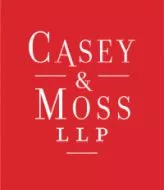On June 16, 2025, important amendments to the Rules for obtaining court approval of settlements involving parties under disability came into force.1 These amendments preserve the open court principle to the greatest extent possible while ensuring that incapable parties are not prejudiced by processes designed to protect them.
Under Rule 7.08 any settlement involving a party under disability2 is not binding on that party without a judge's approval of the settlement. A judge must find that the settlement is in the best interests of the incapable party, considering the benefit received under the settlement, litigation risk, proportionality, and the desire to settle.3 This safeguard is built into our judicial system to ensure that parties under disability are not taken advantage of.
To obtain settlement approval, the incapable party's litigation guardian must bring a motion to the court, supported by an affidavit from the litigation guardian explaining the reasons in support of the settlement, as well as an affidavit from the litigation guardian's lawyer providing a position in respect of settlement.
Under the previous rules, it was necessary to serve the motion for settlement approval on all parties to the litigation. In some cases, to show a judge why a settlement is justified and in the incapable party's best interests, it is necessary to disclose weaknesses of the incapable party's case. This created a risk: if the settlement were not approved, the other parties could potentially benefit from prejudicial information disclosed in the approval motion. Counsel were required to carefully consider what information was necessary to provide the court without undermining the party's position if the settlement was not approved.
The new amendments contain key changes that ensure parties under disability are not prejudiced by these motions.
Rule 7.08(3.1) now allows settlement approval motions to be brought without notice to other parties and without requiring service of the supporting materials (unless a judge orders otherwise).
Pursuant to Rules 7.08(4.2) and 7.08(4.3) counsel are required to redact or omit any information subject to solicitor-client privilege or that could prejudice the person under disability prior to filing the motion materials. Now, only the judge hearing the motion is provided with a copy of the complete and unredacted version of the materials.
Rule 7.08(4.4) requires that settlement approval motions be determined in writing, without the attendance of the parties, and dispenses with the requirement to file a factum. This prevents opposing parties from hearing oral submissions on evidence that was redacted or omitted from the written materials.
These amendments helpfully and thoughtfully ensure that the court receives fulsome information about a party's litigation risk, weaknesses in the case, and any other factors that support settlement, without risking prejudice to the incapable party's position if the settlement is not approved.
Footnotes
1 This blog focuses on Rules 7.08(3.1), 7.08 (4.2), 7.08(4.3), and 7.08(4.4). For a review of all amendments that came into force on June 16, 2025 please review O.Reg 50/25.
2 Parties "under disability" include minors and adults who lack the mental capacity to engage in litigation.
3 Spicer v Wawanesa Mutual Insurance Company, 2023 ONSC 3221
The content of this article is intended to provide a general guide to the subject matter. Specialist advice should be sought about your specific circumstances.


